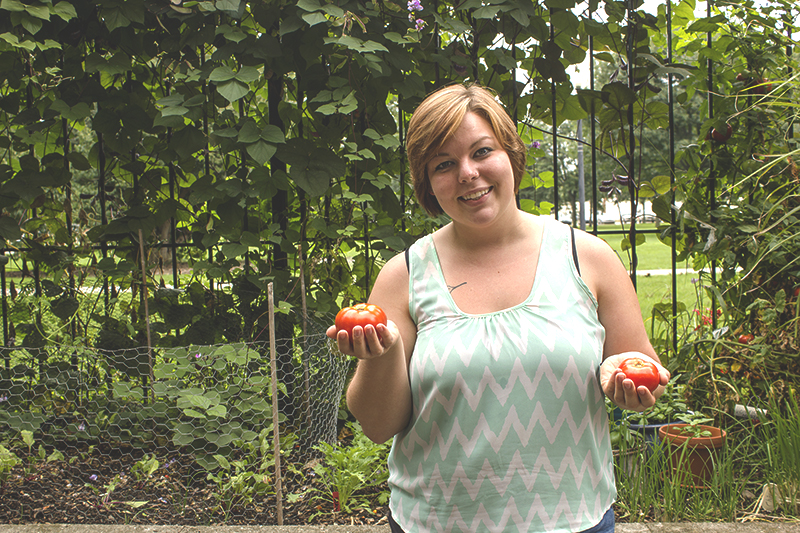My love for sustainability began this summer while working at Clay Bottom Farm. As I worked with my toes in the mud, I began wondering how I could make a difference. My favorite food are homegrown tomatoes, and this year, because of the cold days and heavy rain, it was very difficult to grow tomatoes. I thought about how the climate is changing and the effect it is having on farmers around the world—this is what led me to realize that sustainability is the best option.
I always thought that as long as I recycled and composted, I would be doing “my part” to help save the world, but I was wrong. While recycling and composting are important, as a passionate learner, I knew there were people around the world who would never benefit from me recycling. In fact, when I recycle, I am only fueling more consumption.All of this thinking and wondering led me to a couple of ideas: a blog about sustainability, and extending the harvesting time of gardens. I started out emailing Jeremy Corson, the Resident Director of AVI Fresh, about doing winter gardens for Westlawn. The next day I visited the cafeteria to get measurements and talk to Jeremy about what my plans were. Afterwards, I went home and planned out what my sun boxes were going to look like, where I would put them, and what I would plant. I asked my father about construction and within a week we had bought the lumber and had begun the building process. I was able to start some of my seeds at Clay Bottom Farm while I finished up my internship. This allowed AVI Fresh to harvest more produce from their already established garden.
By growing winter gardens for AVI, the cafeteria will have some fresh produce in the middle of winter. This allows for less produce to be bought, and gives the students and faculty the knowledge of knowing exactly where the food came from! Not only do they know the location of where the plant thrived, but they also know the people that put the work and effort into getting the students fresh produce. This is one amazing part of becoming sustainable—personal relationships with your providers.
While I was starting this project, I also began a blog. I post once or twice a week with tips about sustainability. The tips are meant for everyone and are budget friendly. The goal of the blog is to inform people about how to become more sustainable, and then to inspire them to want to be more eco-friendly. Nowadays, it is not enough to just educate people on a subject—they have to understand it, want it and love it. There are a couple of posts already about compost, sun boxes, and dorm living. The hope is that the college and students will use the blog as a resource for ideas on sustainability.
The campus also has a program for composting. While composting can be not so great smelling, the benefits are numerous. Not only does compost reduce waste going into the landfill, but it also allows for the opportunity to grow produce from the compost generated on campus. Most of the food scraps decompose, are spread on the garden, and then create nutrient-rich soil for future produce to grow in.
There are many other eco-friendly things Goshen College has in place, or are working toward. Want to get involved in sustainability on campus and in the larger community? Come to future Eco Pax events! The first event, the Eco Pax Open House, on Wednesday, September 16 from 8-9:30 p.m. in the third floor connector! Be there or be square!



